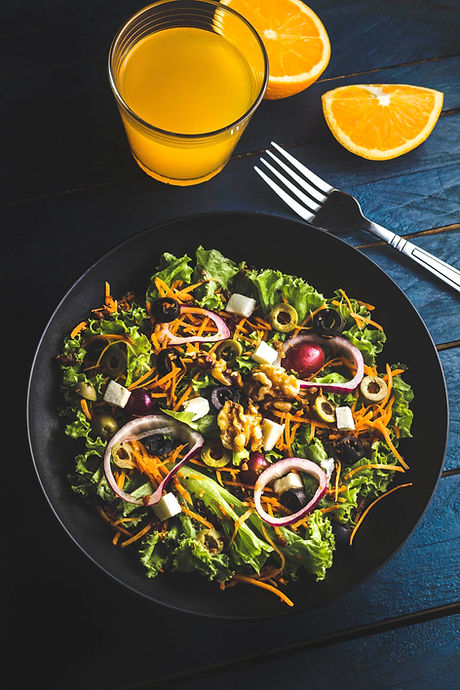
SHOULD MALAYSIANS BE WORRIED ABOUT FOOD SECURITY? | COVID-19
Extracted from TheStar
PETALING JAYA: Despite Malaysia being fairly comfortable food-wise, the Covid-19 pandemic could exacerbate existing food security issues in Malaysia, according to experts interviewed on R.AGE’s recent Newsflash news explainer series.
Experts highlighted Malaysia’s lack of research and development, lack of young talent in the agriculture industry, and dependency on other countries for food supply as issues to be addressed to ensure the country’s preparedness for future crises.
Khazanah Research Institute senior research associate Dr Sarena Che Omar pointed out that though Malaysia is ranked 28 out of 113 countries in the Global Food Security Index, it’s also among the lowest in expenditure for agricultural R&D.
“One of our weakest links is that we don’t spend a lot of money on R&D, ” said Dr Sarena.
“It takes at least 10 to 15 years for research to be done on breeding, disease control, good practices, and we need to do all of this now in order to reap the benefits 10 years from now so that our farming can be more productive and that our farming can be done in a safer environment.”
Food security is defined by several factors aside from the availability of food, including access, utilisation, and stability.
The experts speaking on Newsflash also believe that increased R&D funding will attract more young farmers to the agriculture industry, by modernising it and making it more user-friendly.
“If you look at our farmers you’ll see that they’re in their 50s, 60s, even 70s, but what happens when they retire?” said Dr. Mahaletchumy Arujana, the executive director of Malaysian Biotechnology Information Centre.
“If we can have farmers that work with technology like computers and smartphones, we can modernise our agriculture, and this transformation is required in order to get young people into farming, ” said Dr. Mahaletchumy.
And even though Malaysia produces around 75% of its own food supply (according to a 2019 Bank Negara report), that doesn’t necessarily mean we have food security.
“It’s important to appreciate that self-sufficiency isn’t the only yardstick to measure food security. We need to be aware so that we don’t put all our focus onto one basket which is to produce, produce, produce, ” said Dr Sarena.
For instance, a 2019 article by Universiti Putra Malaysia’s Professor Datuk Dr M Nasir Shamshudin highlighted that Malaysia is food secure on a national level, but food insecure on a household level.
“A study by Rusidah et. al. (2015) in Malaysia indicated that 13.4% of adults had both reduced the size of meals and skipped main meals because of financial constraints, ” he wrote.
He proposed a “bigger investment in food availability, accessibility, utilisation, and stability'' which can be put towards market risk management looking into price monitoring and forecasting.
Dr Nasir also stressed at the time how agriculture is “exposed to many unpredictable risks and uncertainties” and should introduce an emergency-preparedness and response plan.
Dr Sarena added: “Malaysia should have designated centres that have the ability to produce food and provide shelter in the event of a disaster without needing to communicate with anyone.
“Communication is important. It shouldn’t be that during a crisis, people start trying to find out where to go, what to do. Everything should be made clear before having this panic situation, ” she said.

HOW MALAYSIAN GOVERNMENT ENSURE FOOD SECURITY FOR ALL
The initiative NAP 2.0 comes as part of the 12th Malaysia Plan’s strategic framework that aims to push forward the modernisation process in the sector while maintaining a balance between the demand and supply of national food supply. The project is a continuation of the objectives of the current agro-food policy and aims to ensure food security and increase in the contributions to the income of the target groups and national economy. With the initiative based on the modern technology and sustainable development, the Malaysian government seeks to take into account the sustainability of natural resources and the environment and ensure affordable access to sufficient and nutritious food resources. It also aims to improve research and development activities with a view to produce new varieties that can resist the climate change and produce a high yield.
HOW COVID - 19 IMPACTS OUR FOOD CHAIN AND FOOD SECURITY
Institute of Agricultural and Food Policy Studies director, Professor Dr Paul Teng, said it was time Asean member nations invested in agricultural research and development (R&D) that empowered farmers. He said the lack of importance given to food security would not only cause a food shortage, but would also affect the food supply chain and production, possibly crippling a nation. "The Covid-19 pandemic forced us to rethink about our food systems. Early in the pandemic, we saw that agriculture was not seen as an essential service. "As time went by, we started to realise that if you stop people from being involved in agriculture, you will experience a disruption in the food supply. "That is when countries like India and China relooked at their agricultural sector," he said during a webinar organised by the Science Media Centre (SMC) Malaysia.



